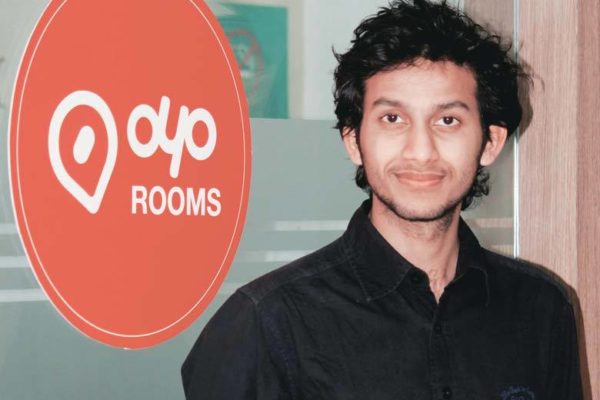As children, we were constantly reminded about the importance of education. More specifically, we were told how important it was to get the best grades so that we could attend the best schools and colleges.
At times, it feels as though our success hinges on our ability to crack an entrance exam, or on our ability to memorise the entire periodic table of elements, or to have the highest paying job! For some of us, bigger dreams take a backseat in the pressures of trying to succeed.
However, for Ritesh Agrawal, the call to take a lesser travelled path led him to create one of India’s largest budget hotel chains—OYO Rooms, currently valued at millions of dollars!
As a child growing up in the small town of Bissam Cuttack in Orissa, Ritesh was always different. With a natural curiosity to learn, he took his education into his own hands. In fact, it is said that he began coding at the early age of 8!
While simple coding languages were taught at school, he would use Google to learn more and more about a subject which he believed would be his passion—coding. He used every opportunity he could to learn something new and even did odd jobs, like selling SIM cards as a child.
It was common for people of his town to move out of the state to study after the tenth standard, mostly because of better opportunities. Ritesh was no different. He moved to Kota, Rajasthan with the dream of entering the field of coding. However, life had different plans for him.
During his free time, and on weekends, he would travel across northern India with whatever pocket money he had.
Later, he moved to Delhi and enrolled in the University of London’s program at the Indian School of Business and Finance. After three days, he decided to take a leave for a couple of days to start his business. He never returned.
He recalls those early days in a speech given at Techcircle Startup saying, “I had a limited budget. While finding places to stay, I would have to look for hostels or local properties. That was what gave me the idea to start Oravel.”
Oravel Stays (which would later become OYO Rooms) initially started as a business modelled in a similar way to India’s Airbnb in 2013, with a focus on global perspectives. On one side, the platform had been launched, but on the other, Ritesh was spending his time backpacking across India, staying at a new bed and breakfast every night.
This was where his challenges escalated.
While he wrote to several hotels asking if he could stay for free, only a few would allow it. During this period he spent all of his savings just to stay at different hotels every night. The company began to struggle, as it failed to gain the traction it was looking for, and soon, Ritesh ran out of money. He spent nights sleeping on the stairs of the different properties, after getting evicted from his home in Delhi. He had 23 rupees in his bank account, and his phone connection had been cut because he failed to pay his bills on time.
“I think that was the most important and best-learning part of my life. My family was well off. It wasn’t as though I couldn’t ask them for help. But I knew that if I picked up the phone and told them I was broke, then they would have told me to come home,” he recalls.
Things were looking bleak for the then 18-year-old. However, it was during this time that he realised that there was one thing he wanted to fix in the hospitality industry– predictability.
That was when things changed. His ideas on transforming the hospitality industry on a global level led him to the Thiel Fellowship—a fellowship created by Peter Thiel, the founder of Paypal and one of the early investors of Facebook. Thiel would award $100,000 to a few people under the age of 20 providing them with resources to incubate their ideas. The catch was that Ritesh had to drop out of college.
Ritesh secured the fellowship and became one of the first resident Indians to be awarded this prestigious honour.
“When I went there, there were two big things I learned. The first was to be able to do innovative things. The second was that if you are thinking anyway, think big,” he adds.
It was this goal that helped him start OYO Rooms. In fact, OYO itself stands for “On Your Own”. He started at a nondescript hotel, at which he had been staying for three months, that was mostly empty all of the time. The owner, desperate for business, allowed Ritesh to transform his hotel, as part of OYO, as long as he could guarantee a profit.
Within ten months, Ritesh had implemented all sorts of new technology to revamp the hotel altogether. He introduced standardisation of products, check-ins via tablets, and real-time photographs of rooms so that customers would know exactly what they were getting for the money they would pay.
“On the ground, we introduced something different. We would give customers a bag of toiletries whenever they checked in, saving time for the managers. So two people could manage 2000 rooms instead of four people managing 30 rooms,” he explains.
It started with one hotel but grew to hundreds of hotels across India, with countries such as Brazil adopting their own version of OYO. What makes this model work, according to Ritesh is that customers get a predictable experience for a lower price, while owners make more money than they ever did before. It was a disruption in the market that was an ideal win-win situation.
Today, the 24-year-old entrepreneur heads OYO, a multimillion-dollar company. In the future, he hopes to be number one in the global rankings in budget hotels.
In a short span of time, Ritesh Agarwal has been able to make the most of his opportunities. So, the question is how?
At the end of the day, it didn’t matter that he was a college dropout. What mattered was that he had a dream, he took a risk, and he saw it through. The road less travelled was far from easy, but it was definitely worth it for this young entrepreneur.






Leave a reply